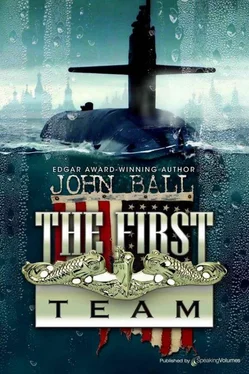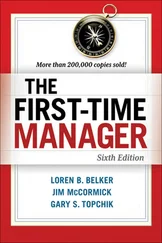Джон Болл - The First Team
Здесь есть возможность читать онлайн «Джон Болл - The First Team» весь текст электронной книги совершенно бесплатно (целиком полную версию без сокращений). В некоторых случаях можно слушать аудио, скачать через торрент в формате fb2 и присутствует краткое содержание. Год выпуска: 2013, Жанр: Триллер, на английском языке. Описание произведения, (предисловие) а так же отзывы посетителей доступны на портале библиотеки ЛибКат.
- Название:The First Team
- Автор:
- Жанр:
- Год:2013
- ISBN:нет данных
- Рейтинг книги:5 / 5. Голосов: 1
-
Избранное:Добавить в избранное
- Отзывы:
-
Ваша оценка:
- 100
- 1
- 2
- 3
- 4
- 5
The First Team: краткое содержание, описание и аннотация
Предлагаем к чтению аннотацию, описание, краткое содержание или предисловие (зависит от того, что написал сам автор книги «The First Team»). Если вы не нашли необходимую информацию о книге — напишите в комментариях, мы постараемся отыскать её.
Student protesters are being slaughtered in the Midwest.
The Jewish pogroms have begun.
You are now living in Soviet — occupied America!
One nuclear submarine and a handful of determined patriots against the combined might of Russia and Soviet-occupied America… The Most Explosive and Gripping “What If” Novel of Our Time!
First published January 1971
The First Team — читать онлайн бесплатно полную книгу (весь текст) целиком
Ниже представлен текст книги, разбитый по страницам. Система сохранения места последней прочитанной страницы, позволяет с удобством читать онлайн бесплатно книгу «The First Team», без необходимости каждый раз заново искать на чём Вы остановились. Поставьте закладку, и сможете в любой момент перейти на страницу, на которой закончили чтение.
Интервал:
Закладка:
He summoned subordinates, who came with all haste and the knowledge that something drastic had occurred. Rostovitch whipped them into action with a few words, then he stormed into his communications room so that not a moment would be lost in finding out what was going on. As the reports began to come in, minor disasters seemed to accumulate. In San Francisco three seized U.S. Army tanks were being kept more or less on the alert to deal with any possible mob uprisings, but only one of them was able to respond to the call to action; the crews of the other two could not be readily located in the predawn on the West Coast. When the one available tank had started out, it had encountered unexpected road construction which had forced a maddening delay.
At Hamilton Air Force Base all three of the posted fighter pilots were discovered to have been out on an extended party with some girls they had met the night before. They seemed unable to rouse themselves and reportedly acted like men who were in a trance. At McClellan the single fighter plane available and armed was discovered to have nearly empty tanks. When an effort was made to refuel it, the main gas tank cap stuck and, when force was applied, it broke loose from its fitting. It was a very minor thing, but the plane could not get off the ground.
At Beale, of the two available interceptors, one had a damaged wingtip as the result of a careless truck driver’s backing into it the day before; the other had a routine flat tire. The supply depot was secured, so a tire had to be removed from the damaged aircraft and switched with the flat. Two airplanes had to be jacked up to accomplish the change, and only one set of the proper-sized jacks could be located on short notice.
At Mather Air Force Base no suitable aircraft of any kind were available. At Travis, the great transpacific terminal of the Military Airlift Command, a plumbing rupture had allowed several hundred gallons of injection water to get into the main fuel lines. Before this was discovered several aircraft had been loaded with the contaminated mixture; they could not be flown until their tanks had been completely drained and the fuel systems cleaned out.
Alameda Naval Air Station had a few transports on the field, but not a single combat aircraft capable of an attack.
And so it went: Moffett, Castle, and all of the other air facilities within a realistic range reported trouble of one kind or another. Before the third such report had been received, Rostovitch knew that a thorough campaign had been staged without his being forewarned. His fury raged to the point where he seemed on the verge of apoplexy, but he could do nothing. He did not know how long it would take the submarine to reach a safe haven in the Pacific, but he sensed without being told that he would not be able to muster anything from anywhere in time. He seized a phone once more and ordered a maximum, unceasing effort to find and capture the saboteurs. He ordered the American commander of the Hunters Point Shipyard seized and held in maximum security for his personal interrogation. The man who had been assigned to guard and watch over him was to be treated likewise. All of the American agents, when captured, were to be executed publicly at once.
Then he thought hard. There had to be some way to locate and destroy the Magsaysay while she was still close in, some system of detection that would reveal her position. Offhand he did not know of any, but that was not in his field. Information was what he needed; once more he jerked up a telephone and hurled an order into the mouthpiece.
The OD on the bridge looked straight up at the mighty structure of the Golden Gate Bridge. “They might take some potshots at us from up there, sir,” he said.
“Pretty difficult,” the captain answered. “If anything does start, you and the talker get below on the double.”
“With your permission, sir, negative.”
“That goes for me, too, sir,” the talker said.
The captain raised his binoculars toward the bridge, then once more searched the sky. He was acutely aware of a low fogbank that lay not too far ahead; that was one prayer answered, although any enemy fighters that managed to get airborne might be equipped with sophisticated modern radars. Mercifully, traffic was not proving to be a problem; since the United States had fallen, waterborne commerce to and from her shores had dropped off to a considerable degree. The radar reports from below indicated that the ship channel was, as of then, free and clear.
Six minutes later the first of the fog began to dilute the stark brightness of the sky. The Magsaysay continued on at flank speed, racing now for the deep water where she could find sanctuary. The first real motion of the Pacific caused the submarine to begin to roll, but the knowledge of what that signified negated any sense of discomfort. A thin allover haze surrounded her as she continued southwestward toward the ship channel. Then, visibly, it became more dense and the sky was erased in a dull whiteness. The ship was alone now, just as though she were on some voyage in space, plowing ahead at her best surface speed, dipping and rolling under the force of the moving water, making steady progress past the shoals that lay astride the harbor entrance.
Eleven minutes later she entered the ship channel. It was a critical time, since for the next three miles there would be no doubt where she was and if the outer exit were to be blocked in any way, she would be trapped. Ten additional, slow, agonizing minutes passed in the fog-clouded atmosphere.
The captain said nothing, he was keeping his attention on the fathometer and the increasing depth of water underneath his ship’s keel. The water was a little rougher now and the Magsaysay was rolling fairly heavily. The depth was eighty-four feet.
“Dave,” the captain broke his silence, “prepare to take her down.”
“Ay, sir.”
The necessary orders were passed below into an atmosphere that was already completely professional. The men of the crew, those who had come aboard in decontamination suits and those who had been masquerading as day workmen, had almost all managed to change into the standard poopie suits worn by Navy submariners at sea. Many of the men had worn them under their decontamination gear; the rest had drawn theirs from the stock on board. The dropped isotope had been expertly recovered from its hiding place and put back into a safe container. The prediving preparations were gone about smoothly and precisely, the crew for the first time looking the part of a hand-picked, coordinated team.
A depth of ninety feet registered as Magsaysay turned twenty degrees to starboard and took up a heading of two seven zero — due west. On the bridge a message came up from below and the phone talker passed it on to the OD. “Ready to dive, sir.”
“Thank you.”
The fog hung on, shrouding the submarine visually, but not from the prying eyes of radar. The captain remained as quietly composed as he had seemed from the first moment that he had taken his place on the bridge, but the OD was well aware of all of the things that must be unreeling themselves in his brain. It was so close now, but it was not yet a sure thing. Once under the water the speed could be increased more than ten knots, and much more sophisticated equipment would be required to pinpoint the ship’s position. Eventually it would be all but impossible and then, at last, Operation Low Blow would be an accomplished fact.
“One hundred and three feet, sir,” the OD said, “and deepening.”
“All right, Dave, take her down. Make your depth fifty feet. Five degree down bubble.”
“Ay, sir.”
The phone talker left the bridge first, then the OD, and finally the captain. After he had passed through, the hatch was closed and secured.
Читать дальшеИнтервал:
Закладка:
Похожие книги на «The First Team»
Представляем Вашему вниманию похожие книги на «The First Team» списком для выбора. Мы отобрали схожую по названию и смыслу литературу в надежде предоставить читателям больше вариантов отыскать новые, интересные, ещё непрочитанные произведения.
Обсуждение, отзывы о книге «The First Team» и просто собственные мнения читателей. Оставьте ваши комментарии, напишите, что Вы думаете о произведении, его смысле или главных героях. Укажите что конкретно понравилось, а что нет, и почему Вы так считаете.












